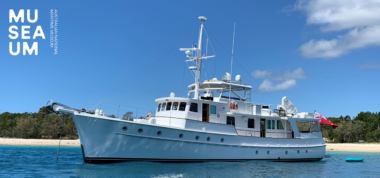Maritime workers throughout South Australia are outraged by a $70 million commitment of public funding by the Federal Government’s Clean Energy Finance Corporation (CEFC) to fund an unsafe, unproductive and anti-worker automation experiment at Flinders Ports’ Adelaide container terminal.
The use of clean energy finance funds to promote the loss of jobs and an automated future for the Australian waterfront is an affront to the promise of a Just Transition on which the Clean Energy Finance Corporation was established.
“The CEFC seems to think that highly productive human operated straddle carriers can be replaced by Automated Rubber Tyre Gantry (ARTG) cranes at the Flinders Adelaide Container Terminal. This is not an investment in decarbonization. It is an investment in cutting jobs,” said the Maritime Union of Australia’s Deputy National Secretary, Warren Smith.
Decarbonisation does not have to come at the expense of people or the removal of operators from machinery as would be the case in Adelaide if this proposal goes ahead.
Moreover, an automated gantry is way less efficient and productive at moving containers around a terminal than straddle cranes operated by skilled Australian workers.
“If decarbonisation is the aim, which we support, then the option of electrified human operated straddle carriers would serve a much greater purpose, protect jobs, maintain high productivity and contribute positively to decarbonisation of Adelaide’s ports, said Brett Larkin, the South Australian Branch Secretary of the MUA. “It must be done in a manner which is socially and economically useful rather than using decarbonisation as a smokescreen for union busting and job cuts,” Mr Larkin said.
“The only thing automation will deliver is a less productive waterfront creating a lower taxation base and more unemployment. Every instance of waterfront automation has resulted in lower productivity outcomes. This is coupled with the increased risk of cyber-security issues which have plagued automated ports and have cause global disruptions on many occasions,” said Warren Smith.
The MUA has been a long term and energetic supporter of decarbonisation efforts and of policies to build a sustainable and economically viable renewable energy sector, especially through offshore wind and green hydrogen projects. Moves such as this by the CEFC undermine the ongoing efforts by the MUA to garner support for socially useful and beneficial climate initiatives.
“The CEFC’s support for job destroying port automation is misguided and illogical,” Mr Larkin said. “Port automation is incredibly inefficient. Terminal operators and their shareholders should not be allowed to waste public money on slow, inaccurate and accident-prone robots,” Larkin added.
The MUA’s position is that decarbonisation and electrification should be a priority on the Australian waterfront, but that automation is a many times failed experiment that cannot mature to a point where it can be trusted to safely and efficiently do the job of skilled and attentive human beings.
Workers and their families, facing the decline of heavy industry and old energy generation and transmission infrastructure, deserve better than to watch their tax dollars be invested in automation experiments at our ports that will rob them of the promised Just Transition.
“The ‘Just Transition’ cannot be achieved by taking good, skilled, safe and respected jobs from the energy sector and giving them to automated robot cranes which on a good day are less accurate, slower, and suffer more consistent downtime than a hardworking and skilled Australian dockworker,” Mr Smith said.
The MUA has written to Minister Chris Bowen to stress to the Federal Government the harmful, anti-social and wasteful nonsense of port automation. The Union has called on the Minister to make it known to the CEFC that public money should not be spent automating Australian ports at the expense of waterfront productivity, communities and jobs.
ENDS.
Contact details:
Tom Harris-Brassil - 0401 834 924

